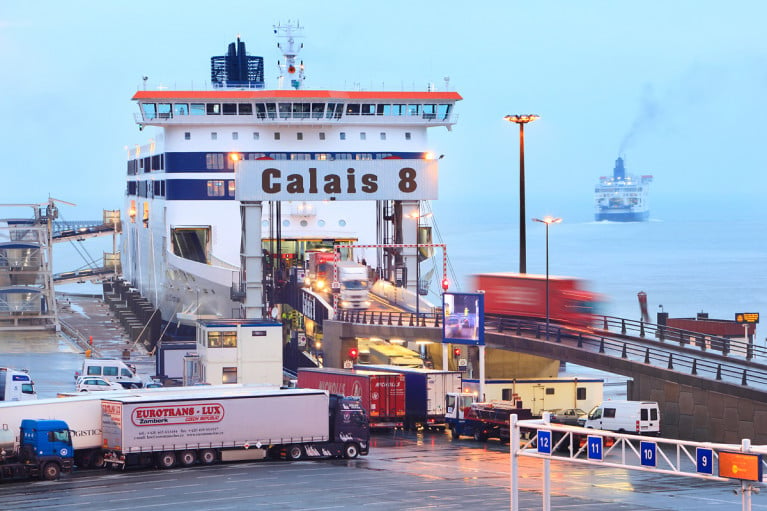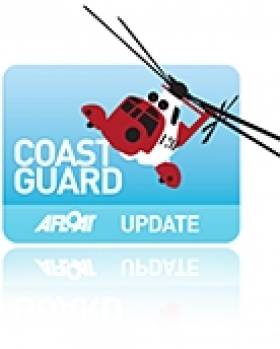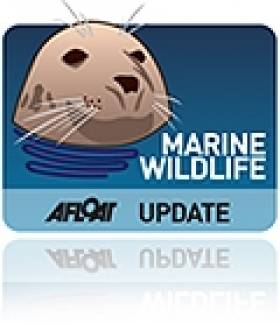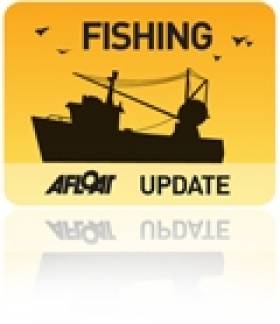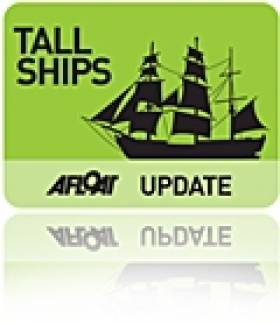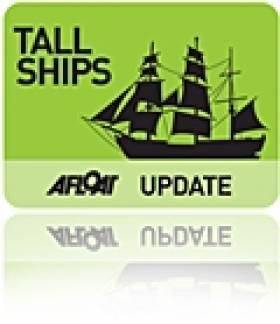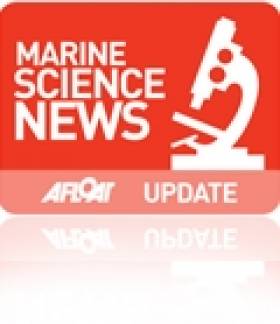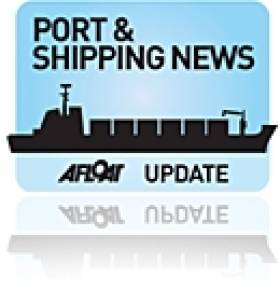Displaying items by tag: Europe
Tourist Numbers Visiting Ireland Still 9% Below 2019 Levels
International tourists of nearly 900,000 visited Ireland in September, down 9% on the same month in 2019.
New figures from the Irish Tourism Industry Confederation (ITIC) show so far this year, visitor numbers are down 20%.
338,000 people visited from continental Europe last month, down 5% on 2019 - making it the strongest performing market.
Meanwhile, the North American market continued to recover, with 230,000 visitors during the month.
The ITIC said it was concerned that the recovery of the sector would be threatened by soaring cost inflation, the energy crisis and supply constraints.
RTE News has more from the ITIC
The port theme for this year's European Sea Ports Organisation (ESPO) Award on Social Integration of Ports is “Enhancing the port-city relationship by encouraging innovators and local start-ups to be part of the port ecosystem”.
This is the award's 12th edition and innovation is key for European ports if they want to prepare for a zero-carbon and digital future. Most European ports are situated in or near big urban agglomerations where innovation and start-up businesses are at their best.
ESPO Award 2020 will go to the port managing body that has developed a successful strategy to attract innovation and local start-ups to the port and thus matches supply and demand for innovative solutions for the port and its stakeholders.
The winning port will demonstrate to what extent this strategy has led not only to stimulating innovation in the port, but also making the port ecosystem an attractive place for innovative ideas and local young start-up talents.
Project submissions have to reach the ESPO Secretariat by Friday 26 June 2020 (at the latest). The application form and the terms of reference are available on the ESPO website.
The winner is being selected by a jury of international port experts and friends, ably led by Irishman Pat Cox, TEN-T coordinator and a former President of the European Parliament.
“The ESPO annual awards always are an inspiring event to be associated with. Ports large and small, central and peripheral, public and private each year reveal the rich tapestry of member port activities. I look forward to this year's theme of attracting innovation start ups as part of the port ecosystem. In a year of unparalleled challenges facing the transport industry because of the Covid-19 pandemic and the great lockdown it precipitated, our ports have proved again their critical and indispensable role in vital supply chain logistics. We owe a debt of gratitude to all those on land and sea who - in every sense of these words - delivered the goods. Crisis often, as an unintended but positive consequence, becomes the mother of invention. On behalf of the ESPO Award Jury let me confirm that we look forward to seeing some great examples of this portside innovation in our in-tray in the months to come,” comments Pat Cox.
The 12th ESPO Award will be officially handed out during an Award Ceremony and Dinner, which will take place on 10 November in Brussels.
About the ESPO award
The ESPO Award was established in 2009 to promote innovative projects of port authorities that improve social integration of ports, especially with the city or wider community in which they are located. In this way, the Award aims to stimulate the sustainable development of European ports and their cities.
Previous winners of the Award are the Port of Gijón (2009), the Port of Helsinki (2010), the Ports of Stockholm (2011), the Port of Genoa (2012), the Port of Antwerp (2013), the Port of Koper (2014), Port of Dublin (2015), BremenPorts (2016) and Guadeloupe Ports Caraïbes (2017), Port of Rotterdam (2018) and last year's winner the Port of Dover.
Unified EU Coastguard On The Cards
#COASTGUARD - Greater co-operation between Europe's coastguard organisations is inevitable, according to the Irish Coast Guard director.
Chris Reynolds was speaking at Search and Rescue 2012, the EU Heads of Coastguard conference in Dublin last Thursday, at which he outlined a feasibility study being conducted by the European Commission on a standardised coastguard service across Europe.
As Shephard Media reports, Reynolds admitted that some challenges stood in front of any effective change in the sector, noting that SAR policy at member state level is often spread across many departments.
But the Costa Condordia disaster off the Italian coast recently may focus governments to develop a "sense of urgency" on the issue, he said.
In the keynote address at the conference, Italian coastguard chief Giuseppe Troina said it was fortunate that the death toll in that incident had not been much greater, emphasising that more than 4,000 people survived the cruise ship's sinking.
The Irish Times has more on the story HERE.
NI Faces Big Fine Over Horse Mussels
#MARINE WILDLIFE - Northern Ireland faces a whopping £8 million (€9.6 million) fine from the EU over its failure to protect horse mussels.
According to BBC News, "little has been done" to protect horse mussel reefs in Strangford Lough despite promises from two government departments as far back as six years ago.
Last year Afloat.ie reported on a study from Queen's University Belfast that revealed the extent of damage to horse mussel reefs in the lough by fishing activity.
Strangford Lough is officially protected as a Special Conservation Area and a Marine Nature Reserve, as well as an Area of Special Scientfic Interest, but as BBC News states, "in reality there has been little protection put in place".
Horse mussels are pivotal to the lough's ecosystem, as some 100 other species rely on the reefs formed by the mussels in the seabed for their habitat.
NI officials now have just a few months to persuade the European Commission that they are taking strong action to protect the species, otherwise they will be charged with breaking EU directives.
BBC News has more on the story HERE.
IWDG to Host European Cetacean Conference in Galway This March
#MARINE WILDLIFE - The Irish Whale and Dolphin Group (IWDG) will host the 26th annual European Cetacean Society Conference in Galway on the weekend of 24-25 March this year.
The Galway Bay Hotel will be the site for the main conference sessions, while workshops will also be held at the Galway-Mayo Institute of Technology (GMIT).
This year's gathering is being held under the theme 'Communication: Information and Ideas Worth Sharing'. Participants will be exploring communication between marine mammals as well as between marine scientists, and between scientists and the public.
As Ireland's Wildlife reports, the conference "offers a offers a great opportunity to find out more about whales and dolphins, their conservation, the cetacean research being carried out in Europe and to meet the researchers who are working to uncover the mysteries of these most enigmatic of creatures."
Registration is now open for the two-day event. For full details of the conference programme, venues and booking information, visit the European Cetacean Society Conference micro site HERE.
Licence Application for Aran Islands Fish Farm 'To Be Lodged in January'
#FISHING - The licence application for a proposed new deep-sea fish farm in the Aran Islands is expected to be lodged in January.
As previously reported on Afloat.ie, Bord Iascaigh Mhara's (BIM) planned 15,000-tonne organic salmon farm off Inis Oírr would be the largest of its kind in Europe, and would create hundreds of jobs in the area.
Commenting on the plans, Galway West Senator Fidelma Healy Eames said it was "a major opportunity for Galway and would represent a very significant economic boost for our coastal communities."
She added: "Deep sea fish farming has proven to be very economically beneficial in countries such as Norway, Chile and Scotland. It is timely that Ireland would capitalise on our fantastic marine resources as these countries have."
According to Healy Eames, the project is expected to "meet all environmental standards and will be barely visible from 2km away and effectively not visible from land.
"It would take up a negligible amount of inshore fisheries ground in the bay (0.22%) and would not interfere with existing fishing routes or Galway Bay ferry routes."
US Cutter Eagle Returns to Home Port After Europe Voyage
The US Coast Guard's training barque Eagle returned to her home port of New London, Connecticut last week after a summer-long voyage to Europe.
Last May the ship and its crew paid a visit to Waterford ahead of this year's Tall Ships Races, where it met a contingent of Connecticut residents, before sailing on towards Hanover, Germany where she was first constructed 75 years ago.
Other ports of call included London, Reykjavik, Halifax in Nova Scotia and a final stop in New York City.
"The cadets had an incredible chance to sail the Atlantic as it was meant to be sailed," Captain Eric Jones told Connecticut's The Day.
The captain noted that it was also a voyage of remembrance, referencing the history of the ship - which the US received in reparations after the Second World War - and the laying of a wreath to memorialise the Coast Guard cutter Alexander Hamilton, torpedoed by a German U-boat off the Icelandic coast in January 1942.
The Day has much more on the story HERE.
US Cutter Eagle On Its Way to Waterford
The US Coast Guard cutter Tall Ship Eagle has set sail on its 75th anniversary voyage to Europe - with Ireland being its first port of call.
Captain Eric C Jones, who pilots the US Coast Guard's training vessel and goodwill ambassador, said the trip was a special one for him and the more than 140 cadets on board, as it will be revisiting the shipyard in Hanover, Germany where it was built in 1936.
Other stops include London, Reykjavik, and Halifax in Nova Scotia before a final stop in New York on 5 August, according to The Day.
Dignitaries and residents from the Eagle's home port of New London, Connecticut will be heading to Waterford - host of the Tall Ships Races this summer - to welcome its arrival in 27 May.
Watch some video of the Eagle in action:
US Schools Send Mini Sailboats Across The Pond
Mini sailboats could soon be spotted in Irish waters if a US school project goes according to plan.
The Bangor Daily News in Maine reports on the Educational Passages programme, through which middle school students will equip miniature sailboats with GPS trackers and set them out to sea to follow their progress across the Atlantic.
In previous years the programme - which is designed to give youngsters hands-on experience in maritime professions and skills such as oceanography and chart reading - has sent its self-steering boats as far as Portugal.
This year's students are hoping to catch the Gulf Stream to send their boats to Europe. The boats will be launched by trainees on the Maine Maritime Academy's training vessel State of Maine, which will also be retrieving a boat from a previous project that was recovered in Ireland.
New Inspection Regime for Ships and Yachts in Europe, Russia, Canada
Yachts in Europe, Russia or Canada will face new marine safety inspections from 2011 following the implementation of the Paris MOU's New Inspection Regime (NIR), Sail World reports.
Previously only 25% of ships and very few yachts were inspected at ports in countries signatory to the Paris Memorandom of Understanding on Port State Control, which includes most maritime countries in Europe as we as Russia and Canada.
But the introduction of the NIR sees a shared commitment to inspect all ships and boats visiting ports in the Paris MOU region.
Vessels will be inspected under such categories as type of vessel, age, flag, class society, owner and/or manager and inspection history. A 'Ship Risk Profile' will also classify vessels as either low risk, standard risk or high risk, requiring inspections every two years, 12 months and six months respectively.
The NIR has courted controversy among boat owners due to the requirements for classification as a Low Risk Ship, which state that the flag in which a yacht is registered must be included on the Paris MOU's approved 'white list'. At present only 16 flags have such approval.
Meanwhile, the region's 'black list' - which represents flags of countries considered high risk - lists a number of Caribbean states.


























